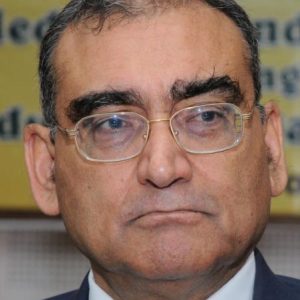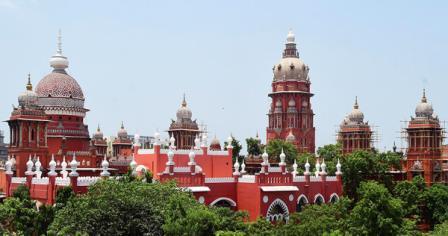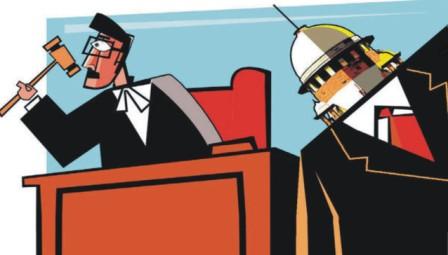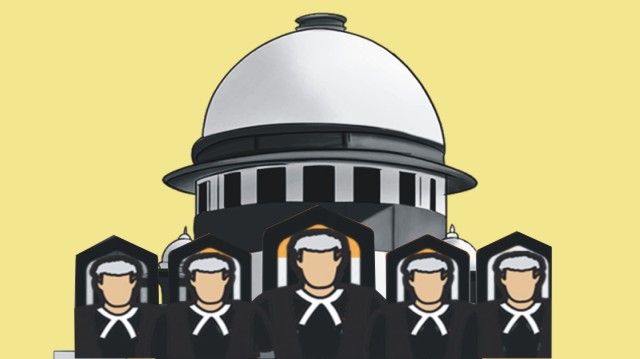

These days a lot of controversy is going on regarding appointments of judges of the High Courts and Supreme Court, with the Supreme Court and the Government of India at loggerheads. So let me narrate my own experience in the Madras High Court.
I took over as Chief Justice of the Madras High Court on 30th November 2004, and was immediately faced with the problem of getting judges appointed in the Court.

At that time the sanctioned strength of the High Court was 49, but the incumbents were only 25, a few of whom were retiring shortly.
This happened because each of the two major political parties in Tamilnadu, the DMK and the ADMK, wanted their own nominees to be appointed, and got the recommendations of the High Court Collegium (which consisted of the Chief Justice of the High Court and his two seniormost colleagues, as per the decision of the Supreme Court in the Judges case) stalled in some way if they thought it contained names of persons aligned to the other party.
Also Read: The Collegium – A sleight of hand
Although under the decision of the Supreme Court in the Judges case the High Court Collegium, which had to recommend names for appointment, consisted of only the three seniormost judges of the High Court, I decided to considerably expand the consultative process.
 So I sent letters to 20 seniormost judges in the High Court, and also to about 10 or 12 senior and highly respected lawyers of the High Court (including the Advocate General of Tamilnadu, the President of the High Court Bar Association, and former Advocate Generals) requesting them to give me a list of those whom they thought deserved to be appointed. Thus I got about 25 lists.
So I sent letters to 20 seniormost judges in the High Court, and also to about 10 or 12 senior and highly respected lawyers of the High Court (including the Advocate General of Tamilnadu, the President of the High Court Bar Association, and former Advocate Generals) requesting them to give me a list of those whom they thought deserved to be appointed. Thus I got about 25 lists.
I then sat with my two seniormost colleagues, Justice N. Dinkar and Justice N.V. Balasubramaniam, and went through these lists. We found many names common in many lists, but I personally made confidential enquiries even about these names regarding their reputation of integrity and competence.
If anyone was known to be strongly aligned to any political party, he was eliminated no matter what his other qualities may be, because to my mind he could not be impartial, as a judge should be.
Also Read: Judicial Ideology and its Impact on Judges’ Decision Making Process
This process took about two months, and I sat with my two seniormost colleagues frequently to discuss the names submitted by the judges and senior lawyers. Ultimately, when a consensus was reached, I recommended 20 names for appointment.

The political party which was then an ally of the Congress in the Centre strongly opposed these recommendations, as the names of those they wanted were not included.
In fact one of their leaders had earlier met me and submitted to me a list of 16 names which the party wanted, but I made enquiries about them and found them undeserving (some were not even practising in any court,though technically enrolled as lawyers, and were full time workers in their party).
Consequently appointments of my collegium’s recommendees was held up for several months.
In view of this impasse, the then Chief Justice of India, Justice Lahoti, asked me to meet him, and so I flew over to Delhi and met him at his residence.
Also Read: Judiciary must remain detached from political ideology to ensure independence
I explained to Justice Lahoti the procedure I adopted for recommending these names.
I told him that none of the recommendees were my friends or relatives, and in fact I had not even heard of them before I became Chief Justice of the Madras High Court. If any name was rejected, for whatever reason, it would not bother me, because that person was not personally connected to me in any way.
 However, I added, I would not recommend any name, come what may, unless I was satisfied that the person was deserving, and would prefer the vacancies to remain, rather than filling them with undeserving persons. I told him that I had done my duty, and now the ball was in his court and that of the Govt of India.
However, I added, I would not recommend any name, come what may, unless I was satisfied that the person was deserving, and would prefer the vacancies to remain, rather than filling them with undeserving persons. I told him that I had done my duty, and now the ball was in his court and that of the Govt of India.
After I returned to Chennai some senior lawyers met me and said that they had told leaders of the political party which was opposing my reoommendations that the persons recommended by me were not aligned to the opposite political party but were neutral, and were good names, and hence should not be opposed.
Ultimately 17 of the 20 persons I recommended were appointed (the other 3 should also have been appointed, but were rejected for some extraneous considerations, which I need not mention here).
Also Read: Keep judiciary away from Govt interference
I suggest a similar transparent procedure be adopted for appointments in the High Courts and the Supreme Court. ![]()
___________
Also Read:
Industrialization versus Environmental Degradation
Centre’s Opaque Auction Rules For Pulses Rip Off Govt Coffers, Help Millers Strike Rich
Need to amend laws like UAPA to provide for punishment for those who slap false cases
Global Arms Trade: Who are the real winners?
Why not 40 pc tickets for women in Punjab and elsewhere?
Punjab – How a deadly cocktail of Agri-Water-Energy nexus going to destroy it?

Disclaimer : PunjabTodayTV.com and other platforms of the Punjab Today group strive to include views and opinions from across the entire spectrum, but by no means do we agree with everything we publish. Our efforts and editorial choices consistently underscore our authors’ right to the freedom of speech. However, it should be clear to all readers that individual authors are responsible for the information, ideas or opinions in their articles, and very often, these do not reflect the views of PunjabTodayTV.com or other platforms of the group. Punjab Today does not assume any responsibility or liability for the views of authors whose work appears here.
Punjab Today believes in serious, engaging, narrative journalism at a time when mainstream media houses seem to have given up on long-form writing and news television has blurred or altogether erased the lines between news and slapstick entertainment. We at Punjab Today believe that readers such as yourself appreciate cerebral journalism, and would like you to hold us against the best international industry standards. Brickbats are welcome even more than bouquets, though an occasional pat on the back is always encouraging. Good journalism can be a lifeline in these uncertain times worldwide. You can support us in myriad ways. To begin with, by spreading word about us and forwarding this reportage. Stay engaged.
— Team PT


Copyright © Punjab Today TV : All right Reserve 2016 - 2024 |